TABLE 14-16
What are the factors that determine the acceleration time (in sec.) from 0 to 60 miles per hour of a car? Data on the following variables for 171 different vehicle models were collected:
Accel Time: Acceleration time in sec.
Cargo Vol: Cargo volume in cu. ft.
HP: Horsepower
MPG: Miles per gallon
SUV: 1 if the vehicle model is an SUV with Coupe as the base when SUV and Sedan are both 0
Sedan: 1 if the vehicle model is a sedan with Coupe as the base when SUV and Sedan are both 0
The regression results using acceleration time as the dependent variable and the remaining variables as the independent variables are presented below.
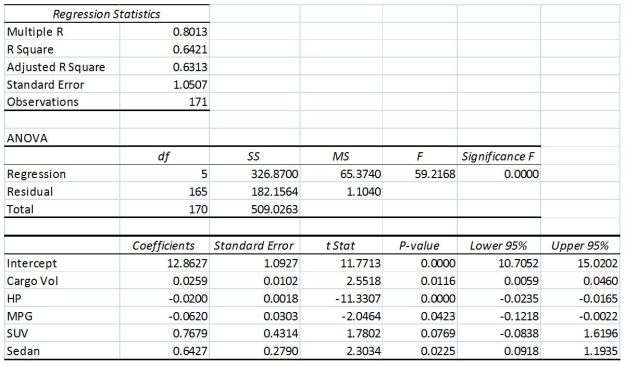
The various residual plots are as shown below.
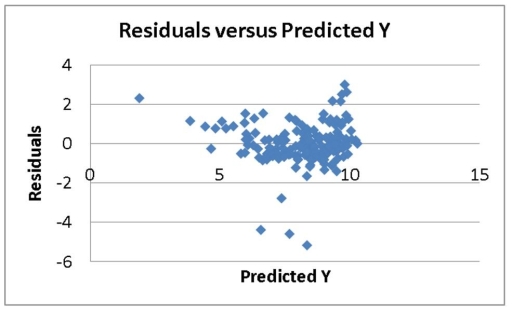
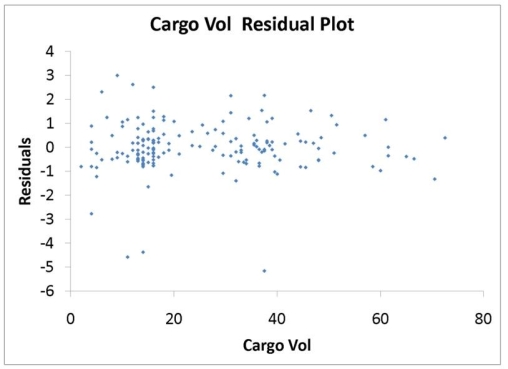
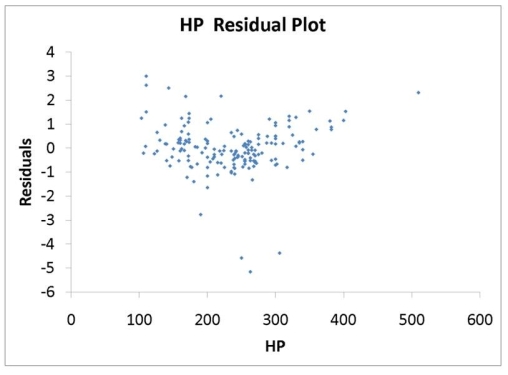
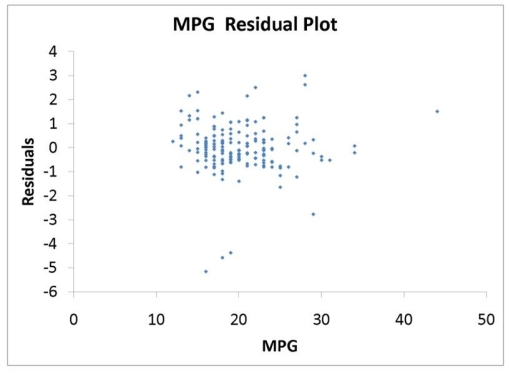
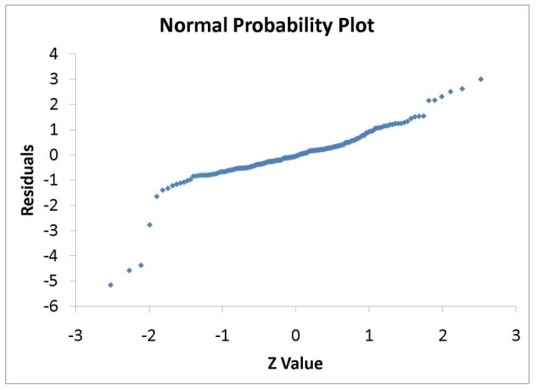

-Referring to 14-16, what is the correct interpretation for the estimated coefficient for Sedan?
Definitions:
Staff Units
Assist the line units by performing specialized services to the organization.
Marketing
The process or technique of promoting, selling, and distributing a product or service.
Output Controls
Output controls are controls that focus on desired targets and allow managers to use their own methods for reaching defined targets.
Corrective Action
Measures taken to rectify a problem, error, or deviation from standard procedures to ensure it does not recur.
Q73: If the correlation coefficient (r) = 1.00,
Q78: The McNemar test is approximately distributed as
Q80: The annual multiplicative time-series model does not
Q83: Referring to Table 15-6, the model that
Q94: _ causes of variation are correctable without
Q96: If the Durbin-Watson statistic has a value
Q115: Referring to Table 13-12, there is sufficient
Q116: Referring to Table 13-4, the managers of
Q179: Referring to Table 14-3, what is the
Q307: Referring to Table 14-15, the alternative hypothesis